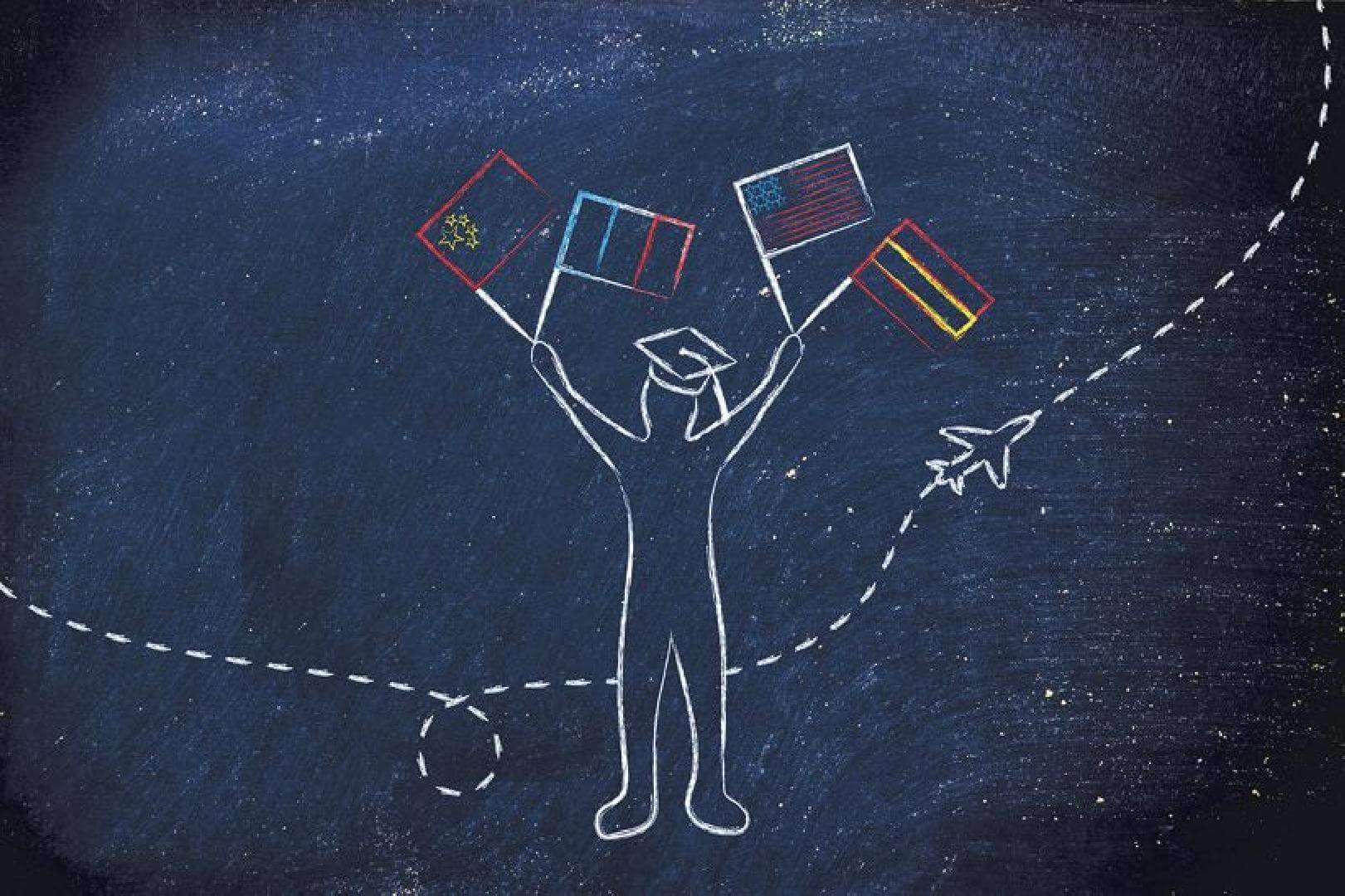What is the International Baccalaureate and what advantages does it offer?
The International Baccalaureate (IB) allows the student’s academic training to integrate different skills, including language learning and the development of their ability to solve problems independently. Below we analyse what the International Baccalaureate is, what its principles are and how this academic process is applied at Aravaca International.
What is the International Baccalaureate
Before analysing the principles of the International Baccalaureate, it should be noted that each academic institution can apply this educational process in a particular way, however, there are some principles that are applicable to all International Baccalaureate programmes.
The International Baccalaureate consists of pre-university courses for students between the ages of 16 and 18, taught in several languages, which prepare students for an international education.
The IB goes far beyond the process of language learning and its practical application, this curricular process includes academic, personal, emotional and social skills, and aims to prepare students for future academic challenges, regardless of the environment in which they are educated.
When we refer to the International Baccalaureate, we must refer to language learning. It is essential for students to acquire a series of linguistic skills that allow them to communicate effectively with people from all over the world. By learning other languages, a person acquires skills oriented towards learning in different educational institutions.
At Aravaca International, we develop International Baccalaureate programmes for students who want to continue their education based on international experiences. Our programmes are developed throughout the academic process, so that students have the necessary skills to face pre-university courses with guarantees.
Advantages and disadvantages of the international baccalaureate
The IB is based on academic programmes oriented towards international educational processes, these are its advantages and disadvantages.
Advantages of the International Baccalaureate
- These programmes are based on standardised content and therefore allow students to acquire knowledge common to different educational institutions around the world.
- IB programmes provide access to more than 2,000 universities in 75 countries.
- The education from an international programme is very similar to that which a student would follow at an international university.
- Intensive language learning is an advantage in itself, because of the capabilities that students develop in terms of their language skills.
- It is an educational process that goes beyond standard academic learning.
Disadvantages of the International Baccalaureate
Generally speaking, the IB has no disadvantages for the student, because it is a very comprehensive educational experience, preparing students for an international future. The academic process may be more demanding than traditional programmes, but the results compensate for the extra effort the student must make.
The International Baccalaureate assessment method
In order to develop an International Baccalaureate programme, it is essential to establish a system of assessment which is shared by institutions around the world.
The International Baccalaureate is based on assignments and examinations, which serve as control tests to check the student’s progress. Each subject is graded between 1 and 7 on the basis of the results obtained in the tests. In order to obtain the International Baccalaureate diploma, it is necessary to obtain at least 24 points.
The academic blocks that make up the IB are as follows:
- Language and literature: Starting from a general perspective, but the programmes focus on the student’s native language.
- Language acquisition: Learning one or more languages throughout the International Baccalaureate, which is reinforced by prior learning.
- Individuals and societies. Social sciences, humanities, economics, history and other subjects related to social knowledge.
- Science: Includes classical subjects such as physics, chemistry and biology, and current subjects such as programming and robotics.
- Mathematics: It is made up of 4 courses which are adapted to the abilities and interests of each student.
- Arts: The IB includes a strong arts education over several years.
In addition to these 6 groups of subjects, there are a series of common core subjects: Theory of environmental knowledge, Monograph (research) and CAS activities (Creativity, Activity, Service).
Academic reinforcement from the first academic years onwards
A student who completes the International Baccalaureate has acquired a series of knowledge and skills that will enable him/her to adapt to any international academic institution. In order to achieve this objective, it is essential to have the reinforcement provided by the previous years of compulsory education.
Language learning is a clear example of how the primary and secondary school years provide the necessary foundation for International Baccalaureate programmes. Learning a language in the two years of the IB would be very complex, so it is necessary for students to already have a broad base of language skills during the previous years.
In addition to the language, it is necessary for a student taking the IB to have many other skills, which are forged throughout the formative period. At Aravaca International we offer a curriculum oriented towards the International Baccalaureate which begins in the Primary Years Programme, in this educational phase, the student not only begins to learn languages, but also assimilates other skills, such as the ability to express opinions, a critical spirit, problem solving or the acceptance of responsibilities.
This educational process is what really allows a student to be academically successful when he or she reaches the pre-university level.
International Baccalaureate at Internacional Aravaca
At International Aravaca we develop specific programmes for students who wish to develop an international education, in order to continue their education in educational institutions beyond our borders.
The primary and intermediate educational programmes are the necessary reinforcement to develop a successful pre-university education. At Aravaca International we offer our students the most complete education, with an international programme that allows our students to take on all the challenges that their future will bring.
